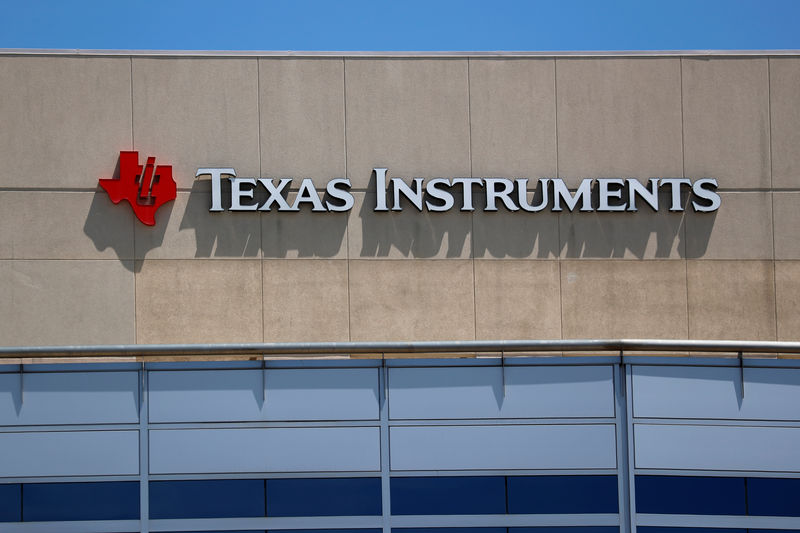Street Calls of the Week
On Tuesday, Stifel maintained a Hold rating with a $200.00 price target on shares of Texas Instruments (NASDAQ:TXN). The firm acknowledges a fundamental shift in the semiconductor company's strategy, noting that while Texas Instruments has previously focused on cost control and opportunistic capital expenditure (capex), it now faces a greater reliance on sales performance to achieve its free cash flow (FCF) per share growth targets.
The change is attributed to the company's substantial capital investments planned through 2026 and beyond. Stifel points out that revenue, a less controllable factor influenced by customer decisions and macroeconomic elements, now plays a more significant role in Texas Instruments' financial strategy, thus elevating the company's risk profile.
Despite these concerns, Stifel also recognizes several mitigating factors that could support Texas Instruments' financial outlook. The anticipated Investment Tax Credit (ITC) benefits, which could provide a 25% tax credit on certain investment projects until 2034, are seen as a positive influence. Additionally, Texas Instruments is expected to receive direct funding of $1.6 billion from the CHIPS Act, with final details yet to be determined, and subsidized loans amounting to $3 billion.
The company's shifting product mix is another aspect that could balance the increased risks. Texas Instruments has significantly grown its Auto/Industrial revenue, which now constitutes approximately 75% of its total revenue in 2023, compared to about 40% in 2014. This is complemented by an enhanced Embedded portfolio, which together lead Stifel to maintain the current Hold rating on the company's shares.
In other recent news, Texas Instruments has seen significant developments in its financial trajectory and strategic investments. The semiconductor company has projected a substantial increase in its free cash flow per share by 2026, with estimates ranging from $8 to $12, surpassing the analyst consensus estimate of $6.91. This projection is due to the company's strategy of constructing three new facilities and expanding its 300mm production capacity.
Deutsche Bank adjusted its price target for Texas Instruments to $200.00 from the previous $185.00, maintaining a Hold rating on the stock. The bank's analysis suggests a conservative revenue estimate for 2026 at around $20 billion, implying a compound annual growth rate of approximately 13% over the next two years.
Bernstein SocGen Group maintained an Underperform rating for Texas Instruments, citing potential long-term capex cuts and structural concerns. Meanwhile, Citi also maintained a Neutral rating on Texas Instruments shares, awaiting a potential rebound in the company's margins.
Elliott Investment Management praised Texas Instruments for its capital allocation update, emphasizing the company's dedication to increasing free cash flow per share. The company also confirmed its flexible capital expenditure plan starting in 2026, aligning with Elliott's recommendations.
Texas Instruments has secured up to $1.6 billion in funding from the U.S. CHIPS and Science Act for the construction of new facilities. These recent developments highlight the company's strategic investments and financial performance.
InvestingPro Insights
As Texas Instruments (NASDAQ:TXN) navigates through strategic shifts and capital investments, real-time data from InvestingPro provides a deeper look into the company's financial health. With a robust market capitalization of $185.1 billion and a P/E ratio standing at 34.9, the company is trading at a high earnings multiple, which could signal investor confidence in its future growth despite potential risks. The data also indicates a dividend yield of 2.59%, underscoring the company's commitment to returning value to shareholders, a sentiment echoed by the fact that Texas Instruments has raised its dividend for 20 consecutive years.
However, it is important to note that analysts anticipate a sales decline in the current year, with revenue growth reported at -14.5% over the last twelve months as of Q2 2024. This aligns with Stifel's concerns regarding the increased significance of sales performance in Texas Instruments' financial strategy. Despite the expected drop in net income this year, the company's liquid assets exceed short-term obligations, indicating a strong liquidity position. For investors seeking further insights, there are over 16 additional InvestingPro Tips available for Texas Instruments, which can provide a more comprehensive understanding of the company's prospects and performance.
These insights, coupled with the potential benefits from the ITC and CHIPS Act funding, paint a multifaceted picture of Texas Instruments' financial landscape. For those looking to delve deeper into the company's metrics and explore additional analytical tips, InvestingPro offers a wealth of information accessible at: https://www.investing.com/pro/TXN.
This article was generated with the support of AI and reviewed by an editor. For more information see our T&C.
